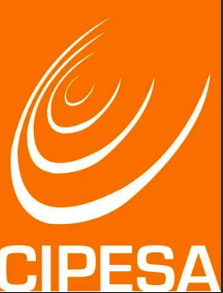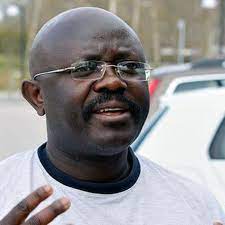All is now set for the Uganda-based Collaboration on International ICT Policy for East and Southern Africa (CIPESA) to unveil, tomorrow, January 31, 2024, its latest report on 10 digital rights experts across the continent of Africa, reports ITREALMS.CIPESA also said that the champions topped list of those who have played pivotal role in shaping the continent’s digital and Internet freedom advocacy landscape over the past 10 years.
Titled “A Decade of Internet Freedom in Africa: Reflections and Insights from 10 Change Makers,” the report launch will take place on January 31, 2024, via a webinar structured as a “Town Hall” discussion, where the featured experts will delve into their insights and reflections on the current state of digital rights in Africa.
The focus will be on key lessons learned and considerations for the next decade in digital rights activities. According to CIPESA, this initiative aims to continue inspiring and informing efforts towards achieving greater internet freedom in Africa.
Dr. Wairagala Wakabi, the Executive Director of CIPESA, describes this report as a special edition commemorating the 10th anniversary of the State of Internet Freedom in Africa (SIFA) report and the annual convening of the Forum on Internet Freedom in Africa (FIFAfrica). The goal is to share the reflections, insights, and perspectives of the featured experts, contributing to the ongoing pursuit of enhanced internet freedom in Africa.
ITREALMS gathered that some experts featured in the report include individuals such as Mr. Gbenga Sessan, the Executive Director of Paradigm Initiative; Mr. Arthur Gwagwa, a Research Scholar at Utrecht University in The Netherlands; Mr. Edetaen Ojo, the Executive Director of Media Rights Agenda (MRA); Ms Emilar Gandhi, the Head of Stakeholder Engagement and Global Strategic Policy Initiatives at Meta (formerly known as Facebook); and Dr. Grace Githaiga, the Chief Executive Officer and Convenor of Kenya ICT Action Network (KICTANet).
In his foreword to the report, Dr. Wakabi emphasizes the challenges Africa has faced in achieving internet freedom, including state censorship, internet shutdowns, surveillance, and the use of repressive laws. He notes the persistent digital divide, highlighting limited internet access, poor infrastructure, high connectivity costs, and low digital literacy levels as ongoing obstacles.
Dr. Wairagala Wakabi, the Executive Director of CIPESA, describes this report as a special edition commemorating the 10th anniversary of the State of Internet Freedom in Africa (SIFA) report and the annual convening of the Forum on Internet Freedom in Africa (FIFAfrica). The goal is to share the reflections, insights, and perspectives of the featured experts, contributing to the ongoing pursuit of enhanced internet freedom in Africa.
ITREALMS gathered that some experts featured in the report include individuals such as Mr. Gbenga Sessan, the Executive Director of Paradigm Initiative; Mr. Arthur Gwagwa, a Research Scholar at Utrecht University in The Netherlands; Mr. Edetaen Ojo, the Executive Director of Media Rights Agenda (MRA); Ms Emilar Gandhi, the Head of Stakeholder Engagement and Global Strategic Policy Initiatives at Meta (formerly known as Facebook); and Dr. Grace Githaiga, the Chief Executive Officer and Convenor of Kenya ICT Action Network (KICTANet).
In his foreword to the report, Dr. Wakabi emphasizes the challenges Africa has faced in achieving internet freedom, including state censorship, internet shutdowns, surveillance, and the use of repressive laws. He notes the persistent digital divide, highlighting limited internet access, poor infrastructure, high connectivity costs, and low digital literacy levels as ongoing obstacles.
Dr. Wakabi acknowledged the evolving threats to internet freedom, such as disinformation, information manipulation, and cyber-attacks, potentially fueled by artificial intelligence.
ITREALMS gathered that the report sought to address these challenges by presenting insights and reflections from the featured experts, providing valuable perspectives for shaping the future of internet freedom in Africa.
Dr. Wakabi called for inclusive advocacy efforts, urging individuals to join the path illuminated by these changemakers.
He, therefore, called for a more free, secure, and open internet in Africa to ensure that more people connect, no one is left behind, and no voices are silenced.
Remmy Nweke/DoP





No comments:
Post a Comment